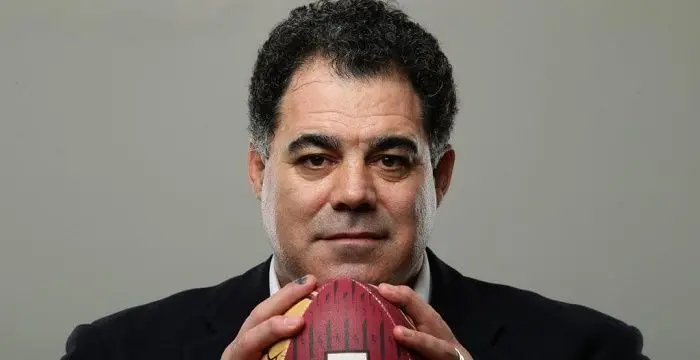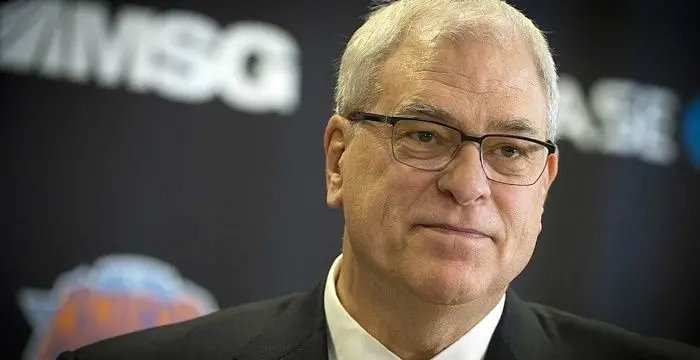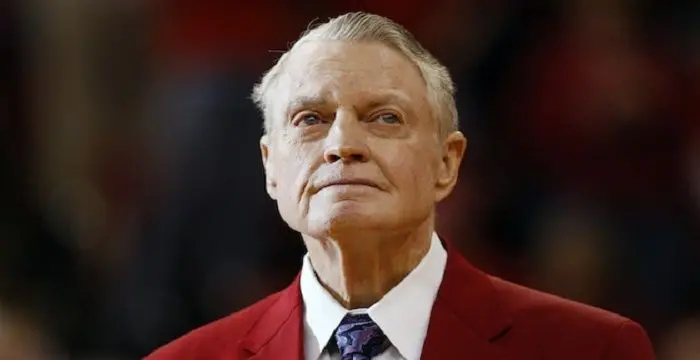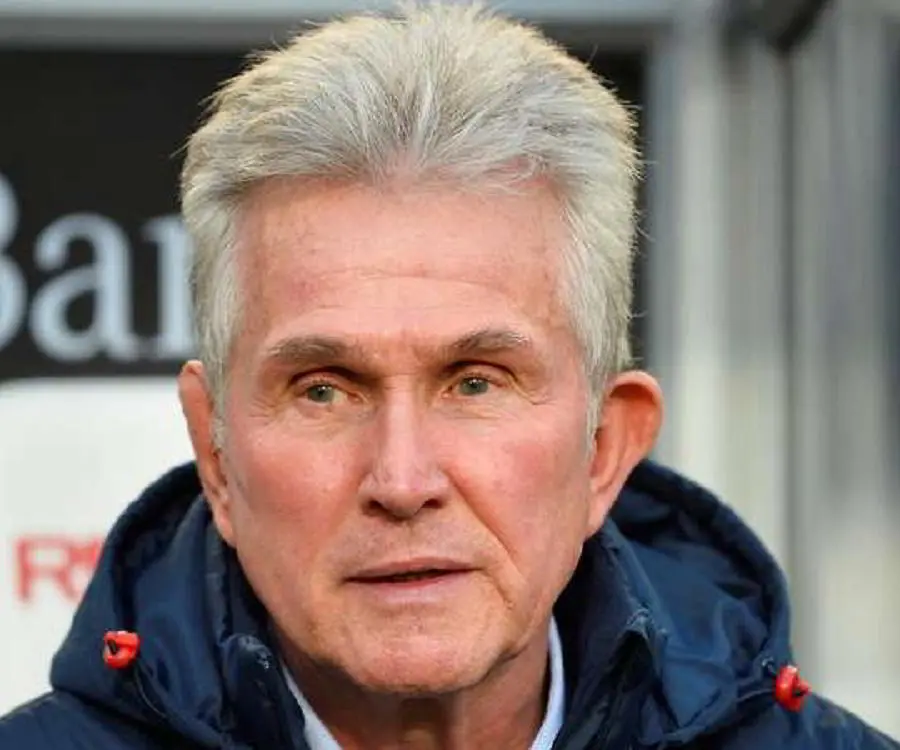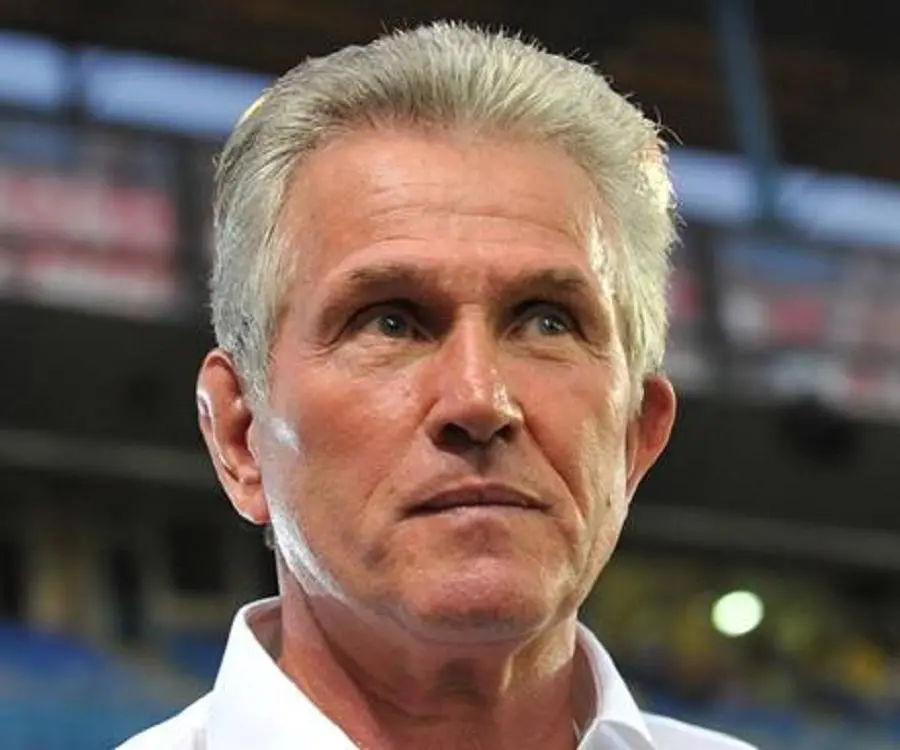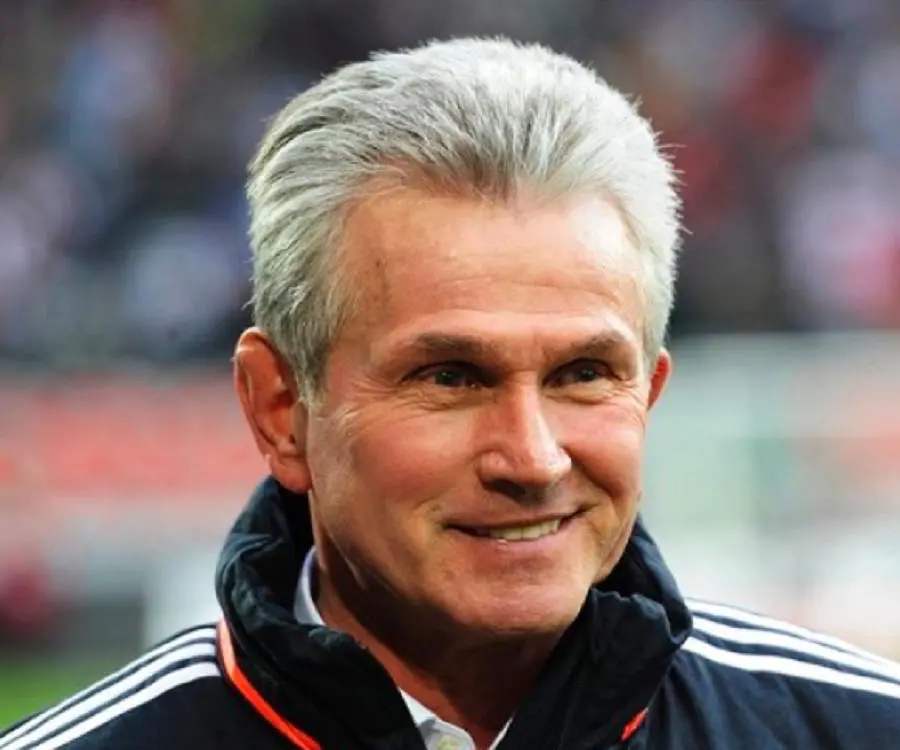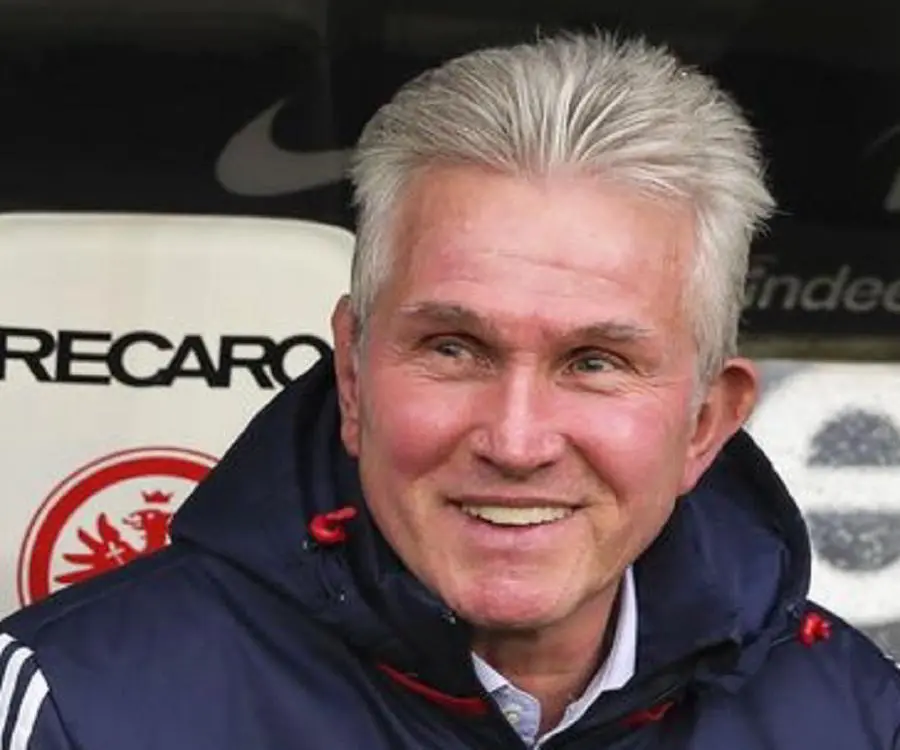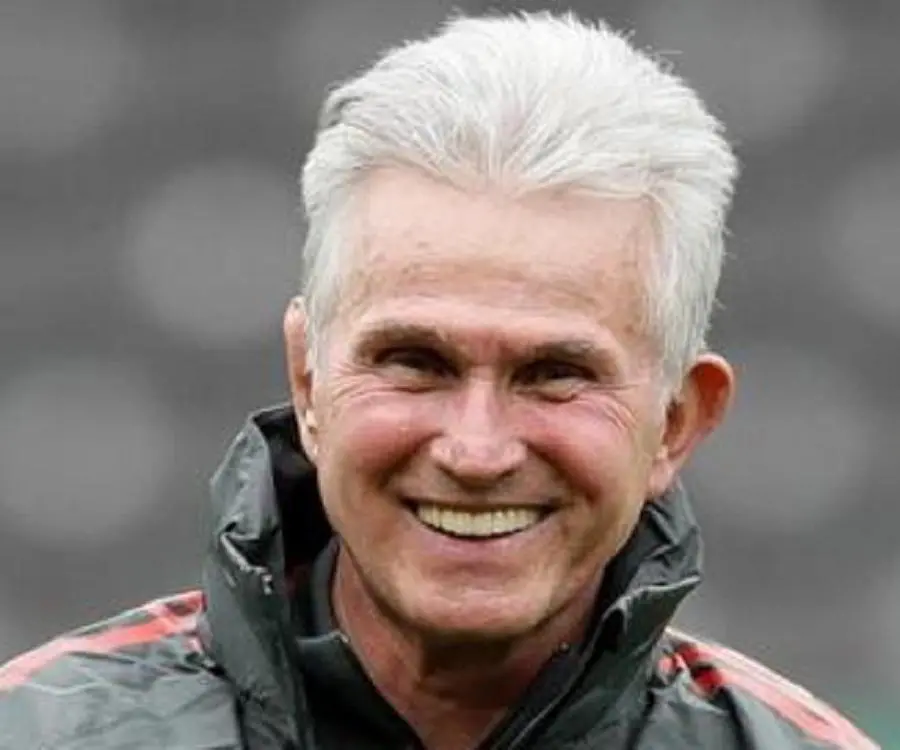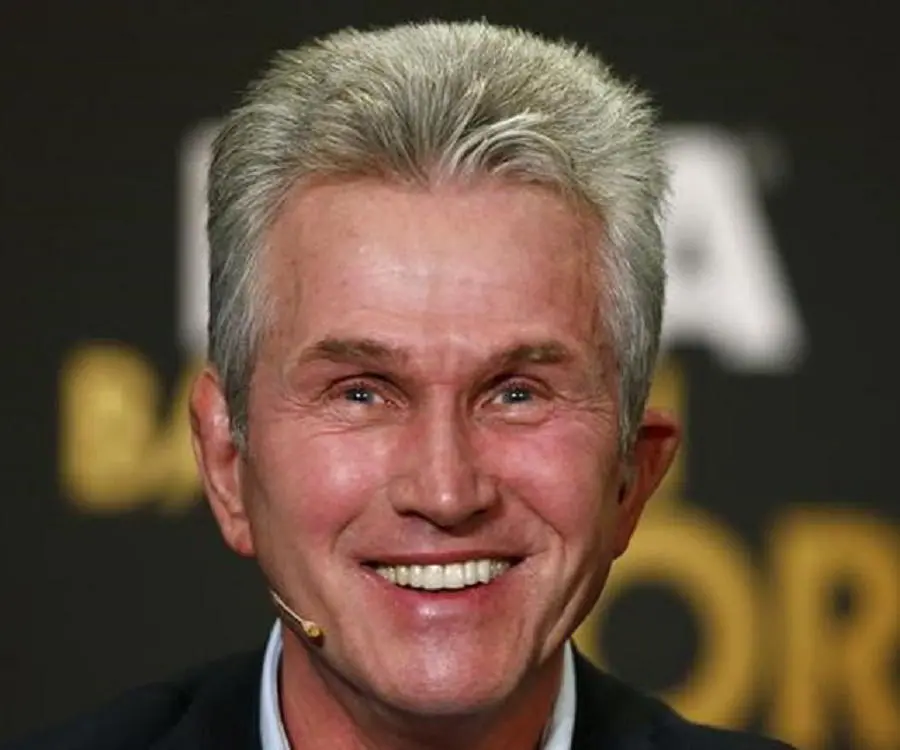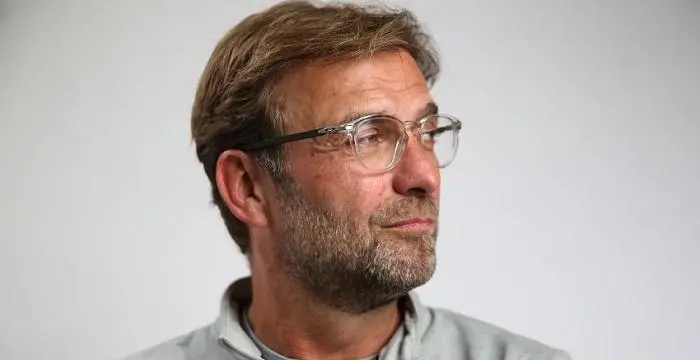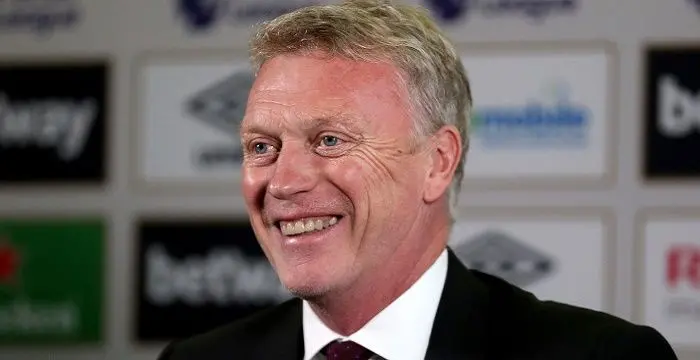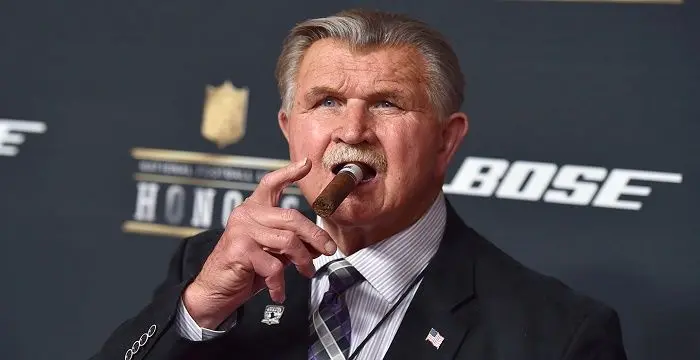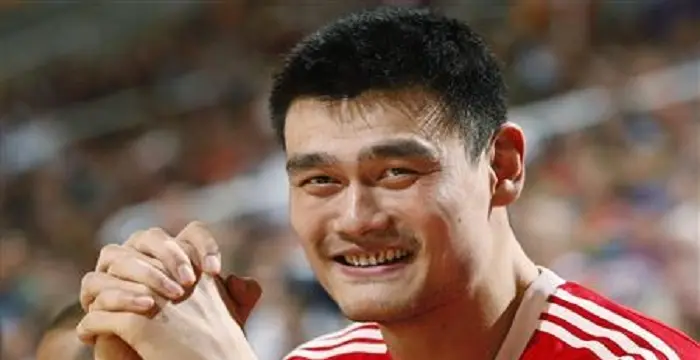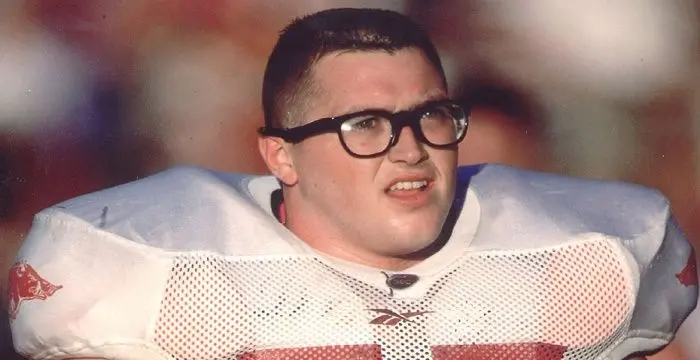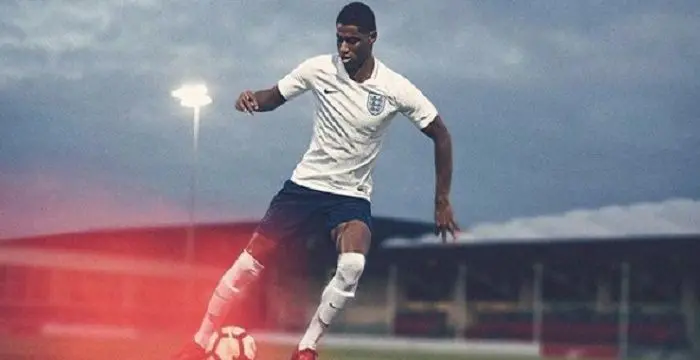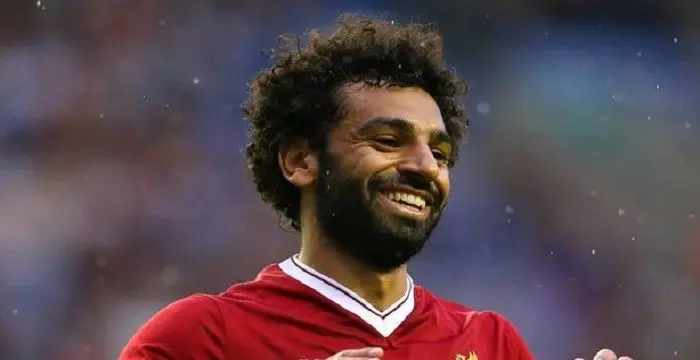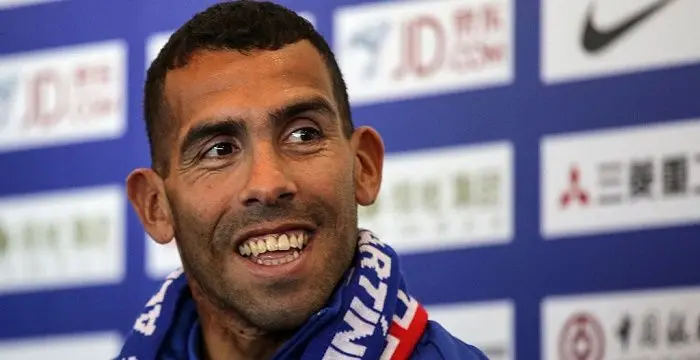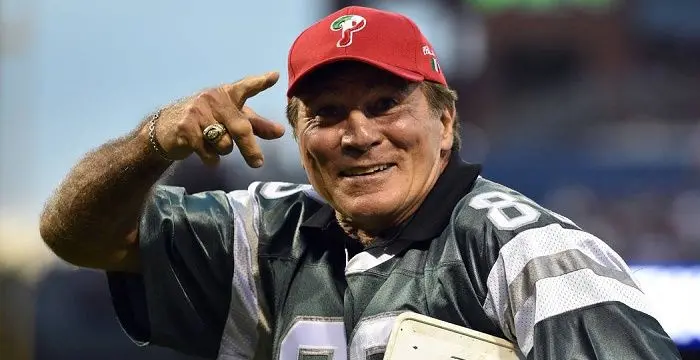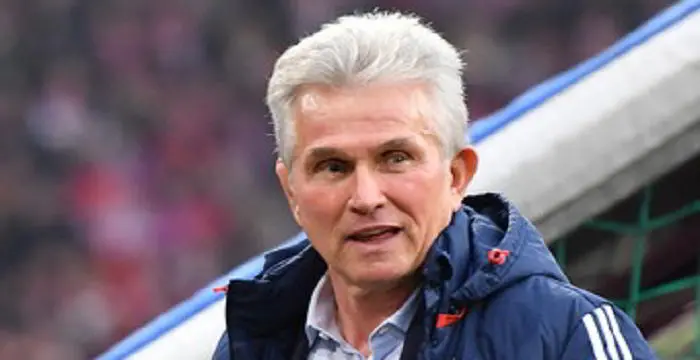
Jupp Heynckes - Coach, Facts and Childhood
Jupp Heynckes's Personal Details
Josef "Jupp" Heynckes is a German former professional footballer and coach
| Information | Detail |
|---|---|
| Birthday | May 9, 1945 |
| Nationality | German |
| Famous | Sportspersons, Coaches, Football Players, Coach |
| Spouses | Iris Heynckes |
| Known as | Josef Heynckes |
| Childrens | Kerstin Heynckes |
| Birth Place | Mönchengladbach |
| Height | 180 |
| Gender | Male |
| Sun Sign | Taurus |
| Born in | Mönchengladbach |
| Famous as | Football Player, Coach |
// Famous Coach
Mal Meninga
Mal Meninga is an Australian professional rugby league football coach and former player. This biography of Mal Meninga provides detailed information about his childhood, life, achievements, works & timeline
Phil Jackson
Phil Jackson is a former American basketball player and a world-renowned basketball coach. This biography profiles his childhood, basketball career, life, achievements and timeline.
Tom Osborne
Tom Osborne is a former American football player, coach and a politician from Nebraska. This biography offers detailed information on his childhood, life, football career, achievements and timeline.
Jupp Heynckes's photo
Who is Jupp Heynckes?
Josef "Jupp" Heynckes is a German former professional footballer and coach. As a player, he was part of the West Germany national team that won the 1972 UEFA European Championship as well as the 1974 FIFA World Cup. He played predominantly for the Borussia Mönchengladbach in club football and won three Bundesliga, one UEFA Cup, and one DFB-Pokal with them. As a coach, he led Bayern Munich to four Bundesliga, one DFB-Pokal, three DFL-Supercup, and one UEFA Championship wins; Real Madrid to one UEFA Championship and one Supercopa de España wins; and FC Schalke 04 to two UEFA Intertoto Cup wins. A native of the city of Mönchengladbach, Heynckes began his amateur career at Grün-Weiß in 1956. Nine years later, he debuted in the Bundesliga. After retiring as a player, he began his career as a manager at his old club, Borussia Mönchengladbach. He subsequently managed Bayern Munich, Athletic Bilbao, Eintracht Frankfurt, Tenerife, Real Madrid, and Benfica, before ending his illustrious managerial career in 2018. He is also known by his nickname “Osram", given by Rudi Gores as he turns noticeably reddish when he is feeling stressful! Heynckes has accumulated a multitude of personal awards over the years. In 2013, he received both the FIFA World Coach of the Year and the World Soccer Awards Manager of the Year awards.
// Famous Coaches
Jürgen Klopp
Jürgen Klopp is a German football manager, and a former professional football player. Check out this biography to know more about his childhood, family, personal life, etc.
David Moyes
David Moyes is a Scottish professional football coach and former player. Check out this biography to know about his birthday, childhood, family life, achievements and fun facts about him.
Mike Ditka
Mike Ditka is a former American football NFL player coach and TV commentator. This biography profiles his childhood, life, career, achievements and timeline.
Childhood & Early Life
Jupp Heynckes was born on May 9, 1945, in Mönchengladbach, Germany. He grew up in one of the most turbulent periods in German history. The country had lost two world wars and its infrastructure and economy were in shambles. Raised in Western Germany, Heynckes witnessed it undergo a complete transformation under its democratically chosen government.
Heynckes started off his youth career at Grün-Weiß Holt in his hometown. After playing there for six years, he came to play for Borussia Mönchengladbach’s youth team in 1962. A year later, he earned a position in the senior team.
Playing Career
Jupp Heynckes played as a forward. In 1963, he debuted in professional football for Mönchengladbach and scored 50 goals in 82 matches during his four-year and first tenure with the team.
When he joined the club, Mönchengladbach was playing in the second division. However, in 1965, the club rose to Bundesliga under the management of Hennes Weisweiler. Heynckes, who was still a teenager, registered 23 goals in 25 matches in his first season.
He then signed with Hannover 96, where he scored 25 goals in 85 matches during his three-year tenure. Subsequently returning to Mönchengladbach, which had become the Bundesliga champion the previous year, he scored 19 goals in 33 matches and led Mönchengladbach’s successful campaign to retain the title. They were the first team in the history of the league to do so.
Heynckes was also part of the 1972-73 DFB-Pokal winning team. In the 1974-75 Bundesliga, he scored an impressive 27 goals in 31 matches and was pivotal in the team’s third Bundesliga win. The club went on to win that year’s and their first UEFA Cup, with Heynckes once more playing an important role. In the second leg of the finals, he scored a hat-trick in their 5-1 win against the Dutch club Twente.
Heynckes would win two more Bundesliga with Mönchengladbach, in 1975–76 and 1976–77. He scored 12 times in 24 matches in the former season and 15 times in 20 matches in the latter season. In 1977-78, which was to be last season as a player, Heynckes scored 18 goals in 21 matches.
In club football, Heynckes earned several accolades, including the Bundesliga top scorer in 1973–74 and 1974–75, European Cup top scorer in 1975–76, UEFA Cup Winners' Cup top scorer in 1973–74, and UEFA Cup top scorer in1972–73 and 1974–75.
Heynckes started off his international career in 1967. He played two matches that year and scored two goals. In 1972, he significantly contributed to West Germany’s successful UEFA European Championship campaign. UEFA included him, along with six other West German players, in the official Team of the Tournament.
He was part of West Germany’s team to the 1974 FIFA World Cup. Despite having had an excellent form in club football for the previous few seasons, Heynckes spent the majority of the tournament on the sidelines. He did take the field for West Germany’s first two fixtures against Chile and Australia but failed to score any goal.
He subsequently suffered an injury and could not take part in any more games. The Die Nationalmannschaft went on to win their second World Cup. In 2013, Heynckes stated that it was his career’s “greatest disappointment” but it also spurred him on and became his “greatest source for motivation.”
Coaching Career
During his final years as a player at Mönchengladbach, Jupp Heynckes adopted the role of a mentor to the young players. He retired as a player in 1978 and immediately began his career as an assistant manager at Mönchengladbach under Udo Lattek.
In 1979, he replaced Lattek as the manager of the team. In the first season, he guided Mönchengladbach to the 1980 UEFA Cup final, where they were defeated by Eintracht Frankfurt.
Heynckes spent the next eight years with Mönchengladbach. Under him, the team played 343 matches, winning 169 of them. In July 1987, he joined Bayern Munich as the new manager. This was the first of his four tenures with the club. He led the team to the DFB-Supercup win in his first season. Forming a strong team, Heynckes orchestrated two back-to-back Bundesliga wins for Bayern. They also won the DFL-Supercup in 1990.
He left Bayern and Germany in 1992 to be the manager of the Spanish club Athletic Bilbao. He was the only third German manager in Spain's La Liga besides Hennes Weisweiler and Lattek. In his first season there, he led the Basque club to a fifth-place finish. They went on to reach the third round of the 1992-93 Copa del Rey.
After spending two years with Bilbao, Heynckes returned to Germany to manage Eintracht Frankfurt. He encountered a lot of issues during his tenure there, including disagreements with star players Anthony Yeboah, Jay-Jay Okocha and Maurizio Gaudino. Heynckes completed the season in Eintracht with 12 wins, 10 draws and 12 losses and resigned from his post soon after.
He subsequently went back to Spain to manage CD Tenerife. His first season there was comparatively successful. Tenerife finished fifth in the La Liga and they reached the quarter-finals in Copa del Rey. In the following year, the club was at the ninth place at the end of the La Liga and made it to the semi-finals of the UEFA Cup, where they lost to the eventual winners FC Schalke 04.
In June 1997, Heynckes assumed the role of the manager of the Spanish champions Real Madrid. While he failed to register any significant domestic success, he led the team to their first European Cup win since 1966. However, it was the lack of success in Spain that cost him the job.
Following his firing from Real Madrid, Heynckes took a year-long break from football. He returned as the coach for S.L. Benfica in Portugal and in 2001, went back to Bilbao for two years.
Heynckes returned to Bundesliga in 2003 and began his tenure with FC Schalke 04, whom he helped in winning the UEFA Intertoto Cup in 2003 and 2004. In May 2006, Heynckes returned to his old club, Borussia Mönchengladbach. However, the homecoming proved to be a disappointing one for both the club and Heynckes as Mönchengladbach continued to have an abysmal season. On January 21, 2007, Heynckes resigned.
After two years of self-imposed retirement, Heynckes came back to serve as a caretaker manager for Bayern in 2009 and helped the team secure a place in the Champions League. Later that year, he was hired by Bayer Leverkusen as their manager. After completing a two-year tenure there, he returned to Bayern for the third time in 2011.
The 2012-13 season was the most successful one in Heynckes’ career. With him as the manager, Bayern won the Bundesliga, DFB-Pokal, DFL-Supercup, and UEFA Champions League.
In 2013, he was named FIFA World Coach of the Year, IFFHS World's Best Club Coach, European Coach of the Year—Alf Ramsey Award, European Coach of the Season, German Football Manager of the Year, and World Soccer Awards Manager of the Year.
He retired once more in 2013 and returned again in 2017 for one season, leading Bayern to yet another Bundesliga victory. In 2018, Heynckes declined to continue as Bayern’s manager for one more season and finally drew his coaching career to a close.
Personal Life
Jupp Heynckes has been married to his wife Iris since 1969. They have a daughter named Kerstin.
// Famous Sportspersons
Ted Williams
Ted Williams was an American baseball player. Read this biography to learn more about his profile, childhood, life and timeline.
Jürgen Klopp
Jürgen Klopp is a German football manager, and a former professional football player. Check out this biography to know more about his childhood, family, personal life, etc.
Yao Ming
Yao Ming is a retired Chinese basketball player who played for Chinese Basketball Association (CBA). Check out this biography to know about his childhood, family life, achievements and fun facts about him.
Jupp Heynckes's awards
| Year | Name | Award |
|---|---|---|
Other | ||
| 0 | German Football Manager of the Year | |
Jupp Heynckes biography timelines
- // 9th May 1945Jupp Heynckes was born on May 9, 1945, in Mönchengladbach, Germany. He grew up in one of the most turbulent periods in German history. The country had lost two world wars and its infrastructure and economy were in shambles. Raised in Western Germany, Heynckes witnessed it undergo a complete transformation under its democratically chosen government.
- // 1962Heynckes started off his youth career at Grün-Weiß Holt in his hometown. After playing there for six years, he came to play for Borussia Mönchengladbach’s youth team in 1962. A year later, he earned a position in the senior team.
- // 1963Jupp Heynckes played as a forward. In 1963, he debuted in professional football for Mönchengladbach and scored 50 goals in 82 matches during his four-year and first tenure with the team.
- // 1965When he joined the club, Mönchengladbach was playing in the second division. However, in 1965, the club rose to Bundesliga under the management of Hennes Weisweiler. Heynckes, who was still a teenager, registered 23 goals in 25 matches in his first season.
- // 1967Heynckes started off his international career in 1967. He played two matches that year and scored two goals. In 1972, he significantly contributed to West Germany’s successful UEFA European Championship campaign. UEFA included him, along with six other West German players, in the official Team of the Tournament.
- // 1969Jupp Heynckes has been married to his wife Iris since 1969. They have a daughter named Kerstin.
- // 1974He was part of West Germany’s team to the 1974 FIFA World Cup. Despite having had an excellent form in club football for the previous few seasons, Heynckes spent the majority of the tournament on the sidelines. He did take the field for West Germany’s first two fixtures against Chile and Australia but failed to score any goal.
- // 1979In 1979, he replaced Lattek as the manager of the team. In the first season, he guided Mönchengladbach to the 1980 UEFA Cup final, where they were defeated by Eintracht Frankfurt.
- // 1987Heynckes spent the next eight years with Mönchengladbach. Under him, the team played 343 matches, winning 169 of them. In July 1987, he joined Bayern Munich as the new manager. This was the first of his four tenures with the club. He led the team to the DFB-Supercup win in his first season. Forming a strong team, Heynckes orchestrated two back-to-back Bundesliga wins for Bayern. They also won the DFL-Supercup in 1990.
- // 1992He left Bayern and Germany in 1992 to be the manager of the Spanish club Athletic Bilbao. He was the only third German manager in Spain's La Liga besides Hennes Weisweiler and Lattek. In his first season there, he led the Basque club to a fifth-place finish. They went on to reach the third round of the 1992-93 Copa del Rey.
- // 1997In June 1997, Heynckes assumed the role of the manager of the Spanish champions Real Madrid. While he failed to register any significant domestic success, he led the team to their first European Cup win since 1966. However, it was the lack of success in Spain that cost him the job.
- // 2003Heynckes returned to Bundesliga in 2003 and began his tenure with FC Schalke 04, whom he helped in winning the UEFA Intertoto Cup in 2003 and 2004. In May 2006, Heynckes returned to his old club, Borussia Mönchengladbach. However, the homecoming proved to be a disappointing one for both the club and Heynckes as Mönchengladbach continued to have an abysmal season. On January 21, 2007, Heynckes resigned.
- // 2009After two years of self-imposed retirement, Heynckes came back to serve as a caretaker manager for Bayern in 2009 and helped the team secure a place in the Champions League. Later that year, he was hired by Bayer Leverkusen as their manager. After completing a two-year tenure there, he returned to Bayern for the third time in 2011.
- // 2013He subsequently suffered an injury and could not take part in any more games. The Die Nationalmannschaft went on to win their second World Cup. In 2013, Heynckes stated that it was his career’s “greatest disappointment” but it also spurred him on and became his “greatest source for motivation.”
- // 2013In 2013, he was named FIFA World Coach of the Year, IFFHS World's Best Club Coach, European Coach of the Year—Alf Ramsey Award, European Coach of the Season, German Football Manager of the Year, and World Soccer Awards Manager of the Year.
- // 2013He retired once more in 2013 and returned again in 2017 for one season, leading Bayern to yet another Bundesliga victory. In 2018, Heynckes declined to continue as Bayern’s manager for one more season and finally drew his coaching career to a close.
// Famous Football Players
Jürgen Klopp
Jürgen Klopp is a German football manager, and a former professional football player. Check out this biography to know more about his childhood, family, personal life, etc.
Brandon Burlsworth
Brandon Burlsworth was a football player who played for the Arkansas Razorbacks. Check out this biography to know about his childhood, family life, achievements and fun facts about him.
Marcus Rashford
Marcus Rashford is an English professional footballer. This biography provides detailed information about his childhood, family, personal life, career, etc.
Mohamed Salah
Mohamed Salah is an Egyptian footballer. This biography profiles his childhood, family, personal life, football career, etc.
Carlos Tevez
Carlos Tevez is an Argentine professional footballer. Check out this biography to know about his birthday, childhood, family life, achievements and fun facts about him.
Vince Papale
Vince Papale is a former professional American football player. Check out this biography to know about his childhood, family life, achievements and fun facts about him.
Jupp Heynckes's FAQ
What is Jupp Heynckes birthday?
Jupp Heynckes was born at 1945-05-09
Where is Jupp Heynckes's birth place?
Jupp Heynckes was born in Mönchengladbach
What is Jupp Heynckes nationalities?
Jupp Heynckes's nationalities is German
Who is Jupp Heynckes spouses?
Jupp Heynckes's spouses is Iris Heynckes
Who is Jupp Heynckes childrens?
Jupp Heynckes's childrens is Kerstin Heynckes
How tall is Jupp Heynckes?
Jupp Heynckes's height is 180
What is Jupp Heynckes's sun sign?
Jupp Heynckes is Taurus
How famous is Jupp Heynckes?
Jupp Heynckes is famouse as Football Player, Coach
